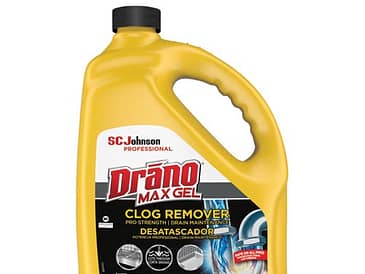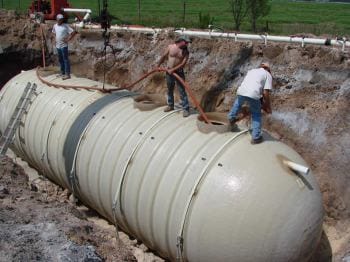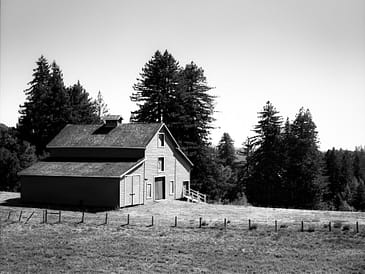The best way to know if your septic tank is full is to check it for yourself. This is important because if your septic tank is not full then the septic system will not work correctly. If it is full then the bacteria and nutrients from your food will be disposed of through the septic system.
Slow drain
If your septic tank is overflowing or you are experiencing a slow drain, you may have an issue with your septic system. It is important to get the right professional to investigate the problem as soon as possible. The right person will be able to tell you whether your tank needs to be pumped or if the problem lies elsewhere.
Having a septic tank that is overflowing is not only an inconvenience but it is also a bad thing for your environment. In addition, it can clog your plumbing, which can lead to water damage. You should be able to prevent this from occurring by regularly emptying your septic tank.
A septic tank is a part of a sewage system that filters waste through the tank and into a drainage field. There are numerous benefits to having a septic system instead of a municipal sewer line. However, a septic system does require regular maintenance and inspections.
Usually, it is the drains that are the first to be affected. These include shower and toilet drains, which are usually located in the basement. They are often sluggish or make strange noises.
If your drains have been slow for a while, it is a good idea to check out your soil stack. This is where all the solids leave the septic tank and will eventually find their way to the ground.
While there are many options for dealing with slow drains, one of the best is to get your septic tank pumped. This will clear out any sludge that has built up in your system and it can save you a lot of money in the long run.
Another septic related option is to use a drain cleaner that is septic friendly. Unfortunately, some of the chemical drain cleaners out there are not septic safe. To avoid damaging your system, be sure to opt for natural bacteria based products that will help digest FOG.
Depending on the size and age of your septic tank, you will need to have it emptied at regular intervals. Having a septic system pumped out can be a costly and lengthy process.
Gurgling sounds in pipes
Gurgling sounds in pipes can be a sign of something serious. This can be caused by a clogged drain or a clogged septic tank. Regardless of the cause, gurgling is an unpleasant sound.
The good news is that there are ways to solve these problems. You can hire a professional to pump out your septic tank, or you can tackle this problem on your own. But before you take the plunge, make sure you’re aware of the septic system’s most important functions.
A septic tank is a vital part of any home. It’s important that it is pumped out regularly. If you aren’t doing this, you could end up with a septic backup, which isn’t only unpleasant, it can be dangerous.
Gurgling isn’t always the most enlightening of all of the plumbing gizmos, but if it is, it can be a signal that your septic system needs some attention. There are a few different causes for this phenomenon, and a professional can help you decide if your septic system is in need of repair.
The septic tank is one of the more complex parts of your home, but if you know how to recognize the signs of trouble, you can avoid major catastrophes. However, if you hear any strange noises, call a professional as soon as you can.
Gurgling is a common symptom of a clogged sewer line. The symptom is more obvious if you’re using a large amount of water in your system. Using too much water in your plumbing system will reduce its efficiency, and this can lead to a gurgling septic tank.
When it comes to septic systems, the best way to save money is to take care of it. Having your septic system pumped out every three to five years is a smart idea. Not only will this allow your septic system to function properly, but it will keep you from paying for unnecessary repairs in the future.
Having your septic system inspected and pumped out by a professional can help ensure that your plumbing system is in tip-top shape.
Nitrates in well water
If you have a well on your property, you should be aware that nitrates can be present in your water. Nitrates are naturally occurring compounds that come from the earth’s atmosphere and soil. They are also produced by plants and animals.
The presence of nitrates in your water will vary depending on the geology of your neighborhood. It is also important to know how you can prevent nitrate contamination in your water. There are a variety of ways you can treat your water to eliminate nitrates.
Typically, nitrates enter your water supply through agricultural runoff, flooded sewers, and industrial waste. They can also be contaminated by leaking septic systems, manure, and fertilizers.
You can avoid nitrates by installing a water treatment system. Some of the best ways to do this include ion exchange and distillation. These two methods are most effective in removing nitrates. Alternatively, you can install a new well, which can draw water from a different level of bedrock.
If your septic system is not working properly, you may need to pump out your tank. This can reduce nitrite and nitrate in your well. Wells that are downhill from a farm or landfill are more likely to have elevated nitrates.
If your water is contaminated with nitrates, you should avoid using your well for infants and children under six months. Babies and young children have higher concentrations of nitrite in their GI tracts and have a greater risk of anoxia.
A nitrate-nitrogen concentration above the EPA’s safe level is an indication that your water may be contaminated with bacteria. In addition to septic system issues, improper animal waste disposal can also contribute to nitrates in your well.
To ensure that your well is free from nitrates, you should contact a licensed well contractor to inspect and test your well. Once the nitrates levels are under control, you can install a septic tank or a water treatment system.
Water tests can also be used to detect nitrates and other contaminants. These tests should be performed at least annually. Tests should include pH, total dissolved solids, and bacteria.
Sewage backing up
There are some obvious signs that your septic tank is full. These include sewage backup, odors, and gurgling sounds. However, there are also less obvious warning signs.
Septic system problems usually occur when something enters the system from the wrong location. This may be due to the use of a toilet or a bathtub. Some people flush items down the drain instead of properly disposing of them. If you notice any of these signs, call a plumber or septic service.
The presence of standing water around your septic tank is another sign of a septic tank that needs to be pumped. You should call a plumber or septic service for professional diagnostics to ensure that the problem is not a clog in your drainage pipes.
A clog in your inlet baffle is another symptom of a septic tank that needs pumping. You can use a pole to unclog the opening or hire a professional. It is best to only flush the toilet paper when you have a clog in your inlet baffle.
Sludge buildup is one of the most common septic tank problems. Having sludge in your septic tank can clog the drain field and cause water to pool in your yard.
One of the easiest ways to tell if your septic tank is full is to check the water level in the leach field. When it is empty, the water will rise to a normal level. However, when it is full, the water will be at a height that it is designed to hold.
Slow draining appliances such as sinks, showers, and bathtubs are another warning sign that you have a full septic tank. It is important to take these precautions because a septic tank that is not emptied can cause health problems.
Sewage backup can be a dangerous and even deadly situation. If you are experiencing a sewage backup, turn off all the water in your home immediately. Do not try to clean the mess yourself. Rather, call a plumber or septic services company.
You should also have a float switch installed to prevent any backups. An overflowing septic tank can also cause a foul odor to build up in the surrounding area.





